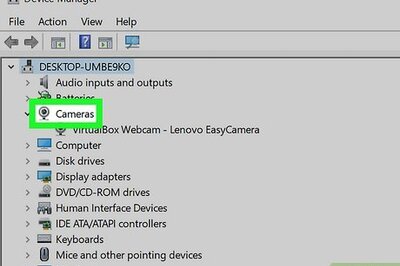
views
Panic attacks can be frightening and may make you feel like you have no control over your circumstances. Technically speaking, panic attacks are the sudden and intense onset of crippling fear that triggers physical and emotional reactions without the apparent presence of any direct cause or stimuli.
Panic attacks, unlike heart attacks, are not life-threatening, but they can be challenging to deal with when they occur frequently and may have a debilitating effect on your life. Frequent panic attacks are unlikely to happen unless it’s a chronic problem, better known as panic disorder. If you have panic disorder, you might need more interventions and must consult a psychiatrist for help.
Symptoms of a panic attack
The symptoms of a panic attack usually show up without any warning and tend to peak within a few minutes. The following are some symptoms you may experience during a panic attack:
- Rapid heart rate or pounding heartbeats
- Sweating without the presence of excessive heat
- Trembling or shaking of hands and arms
- Chills or hot flashes
- Feeling short of breath or unable to breathe well
- Chest pain
- Headache
- Intense fear, loss of control or a sense of impending doom
- Dizziness or feeling faint
- Feeling everything is surreal or unreal
Causes of a panic attack
The reason behind your panic attack can be genetic, a major stressful event in life, a sensitive temperament or neurological changes in your brain’s functioning after a trauma or accident. If any of these issues are chronic in your case, then you may also suffer from panic disorder. If you have frequent panic attacks, consulting a doctor is necessary for your own wellbeing.
Issues caused by frequent panic attacks
If you have frequent panic attacks or panic disorder and leave the issue untreated, the following complications may show up in your life:
- Development of debilitating phobias or fears about locations or situations
- Awkwardness in or avoidance of social situations, family, friends, etc
- Performance issues at home and especially at work
- Depression, anxiety disorders or other psychiatric disorders
- Risk of suicide or suicidal thoughts
- Alcohol or substance abuse
How to deal with panic attacks
The first time you have a panic attack may not be under your control but once you’ve been through this terrifying experience, you may wish to urgently avoid any subsequent ones. What you must do to avoid a recurrence is to consult a doctor, psychologist, counsellor or trustworthy friend about your experience and then prevent the triggers from reappearing. Meditating, exercising, yoga, playing a sport or taking up a hobby like cooking may help you keep stress at bay. Getting proper nutrition and sleep is also important to keep panic attacks at bay.
For more information, read our article on Panic attacks and panic disorder.
Health articles on News18 are written by myUpchar.com, India’s first and biggest resource for verified medical information. At myUpchar, researchers and journalists work with doctors to bring you information on all things health.
Read all the Latest News, Breaking News and Coronavirus News here




















Comments
0 comment